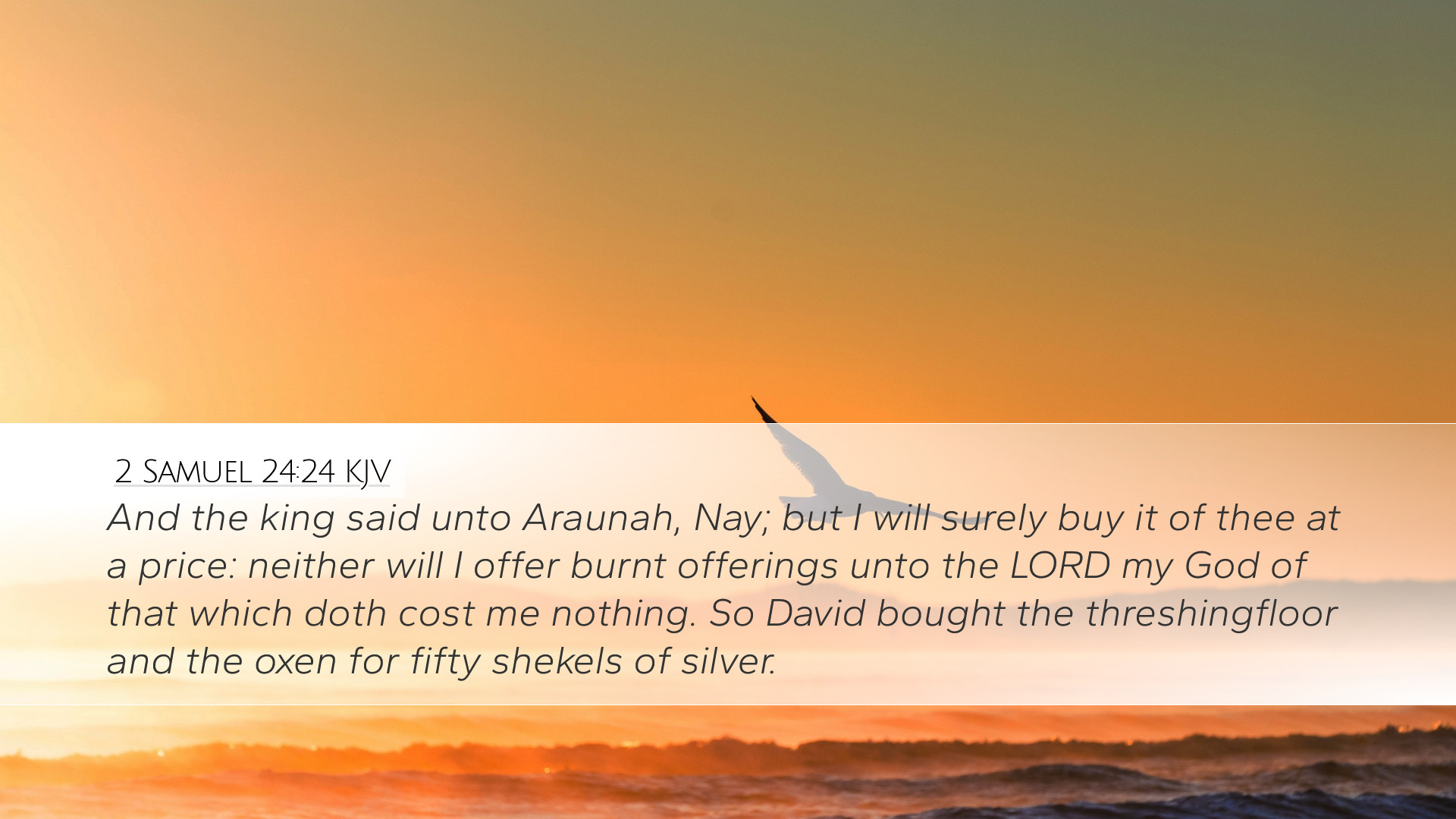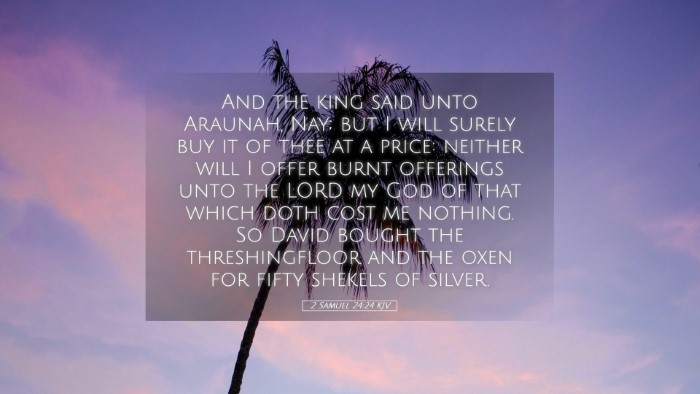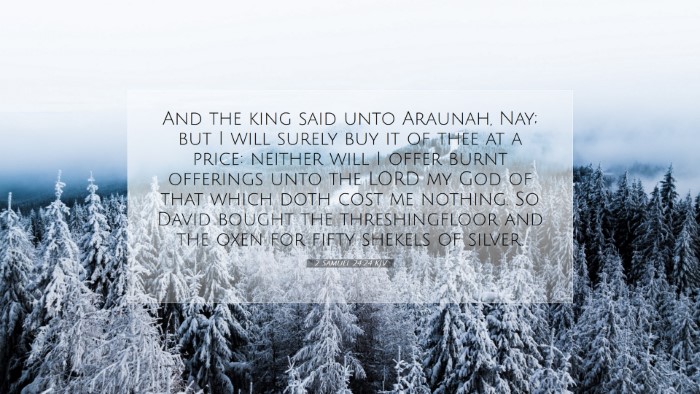Bible Commentary on 2 Samuel 24:24
Verse Context: In this verse, King David declares his intent to purchase a threshing floor from Araunah (Ornan) the Jebusite, emphasizing the principle of not offering to the LORD that which costs him nothing. This statement encapsulates a profound truth regarding sacrifice in worship.
Insights from Matthew Henry
Matthew Henry emphasizes that David's willingness to pay for the threshing floor illustrates a deep understanding of genuine worship and sacrifice. He points out:
- Ownership of Sacrifice: True worship involves personal investment. David's insistence that he would not offer burnt offerings to the Lord that cost him nothing reveals a key biblical principle—the expectation of sacrifice in serving God.
- Spiritual Reflection: Henry suggests that the actions of David are reflective of a heart committed to God. Such a heart recognizes that true devotion necessitates something of value, whether it be time, effort, or resources.
- Worship Requires Sacrifice: He draws a parallel to New Testament giving, indicating that believers are called to be generous in both spirit and substance, as genuine worship will naturally express itself through sacrifice.
Insights from Albert Barnes
Albert Barnes provides a theological foundation for understanding the text. His remarks include:
- Principle of Sacrifice: Barnes articulates that the essence of David's statement is rooted in the notion that the costliness of an offering reflects the honor given to God. Hence, the greater the cost, the greater the worth of the tribute.
- Contextual Significance: The purchase of the threshing floor is also placed in the context of the plague that is ongoing due to David's census. Barnes notes that this act of buying the ground for the altar represents an act of repentance and acknowledgment of God’s sovereignty over Israel.
- Faith and Obedience: Barnes encourages readers to see in this narrative the dual principles of faith and obedience, where David here is shown as a ruler who is not above humble repentance, but rather adheres to the demands of God for willing service.
Insights from Adam Clarke
Adam Clarke's commentary dives deeper into the implications of David's declaration:
- Intention Behind Offering: Clarke highlights that the worthlessness of an offering is not determined by its monetary value but by the heart's intent behind it. He argues that mere external acts with no internal value are of little use.
- Implications for Worship: Clarifying the importance of voluntary offerings, Clarke states that God desires offerings made in response to His grace, stressing that genuine offerings arise from a heart moved by gratitude.
- Historical Context: Clarke connects the significance of this act with the later establishment of the Temple on this very site, suggesting that David's intention here is a foundational event that sets the stage for future worship practices in Israel.
Overall Theological Implications
This verse carries foundational lessons for worshipers. Here are some key takeaways:
- Costly Worship: True worship is inherently sacrificial. It calls for engagement from the believer, both in heart and in resources. Mere acts of service that do not cost may reflect a lack of sincerity.
- Repentance and Restoration: David's purchasing of the threshing floor illustrates actions taken in repentance, which God honors in the journey of restoration. The act is more than transactional; it embodies a covenant commitment.
- Worship in Spirit and Truth: The New Testament echoes this sentiment through Christ’s teachings that true worshipers will worship the Father in spirit and truth, furthering the understanding that worship encompasses an honest and tangible expression of love and devotion.
Pastoral Reflections
For pastors and church leaders, this text serves as a reminder of the need for preaching that emphasizes the call to costly discipleship. The implications for congregational life are profound:
- Teaching Generosity: Leaders should encourage practices that reflect sacrificial giving as expressions of faith in the community life of the church.
- Modeling Authentic Worship: Pastors must exemplify a lifestyle where worship is integrated with sacrifice, encouraging congregants to evaluate their own offerings to God.
- Community and Accountability: Engage the church in communal dialogues about what it means to serve and give, fostering a culture where sacrifices are shared and understood among the body of Christ.
Conclusion
2 Samuel 24:24 ultimately walks us through the understanding of what it means to truly worship God. As illustrated in these commentaries, the essence of our offerings is intertwined with personal cost, sincerity, and genuine intention. David's decision encapsulates the heart of biblical worship—acknowledgment of God's sovereignty and a willingness to offer ourselves fully in service and devotion to Him.'


